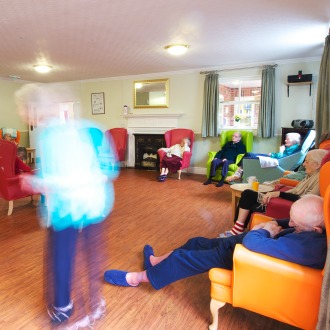A team of 200 clinical pharmacists are being recruited to reduce over prescribing in care home residents, NHS England has announced.
The roll out is part of measures announced in the NHS long term plan to provide better services for care home residents.
It is hoped the move will improve quality of life, limit hospital stays and cut over medication among care home patients who on average take seven medicines a day.
The £20 million programme is already in place in 14 areas of the country under integrated care systems designed to simplify systems between GPs, hospitals, councils and charities, NHS England said.
Plans also include improved GP support with healthcare professionals assigned to care homes and more visits from specialists like dieticians.
Care home residents account for 250,000 emergency hospital admissions every year and it is estimated that 35 to 40% of these could be avoidable, with over medication playing a large part.
Professor Alistair Burns, national clinical director for dementia and older people’s mental health at NHS England, said: ‘Strengthening the ties between GPs and care homes made a huge difference to residents’ health when we tested the scheme and the NHS long term plan will mean older people in every part of the country soon will benefit from tailored, specialist support in their care home.
England’s chief pharmaceutical officer Keith Ridge said: ‘Too many patients are prescribed medicines they may no longer need or may need adjusting, which is why the NHS long term plan is funding expert pharmacy teams across the country to give tailored advice to care home residents and extra support to staff to increase the safety and quality of older people’s care.’
BMA GP committee chair Dr Richard Vautrey said they had been campaigning an increase in the number of pharmacists working for and with practices which has been shown to reduce practice workload.
‘Supporting patients in care homes, who often have complex needs, is a significant element of day-to-day work for practices and the greater involvement of pharmacists helping practices to deliver quality care to these patients could help to reduce workload pressures as well.’
In April, Pulse reported that contract documents stated that primary care networks ‘should include’ pharmacies, alongside dentists and optometrists.
It followed the news that GPs would be assigned to care homes to provide ‘tailored treatment and support’ as part of the long term plan.

















